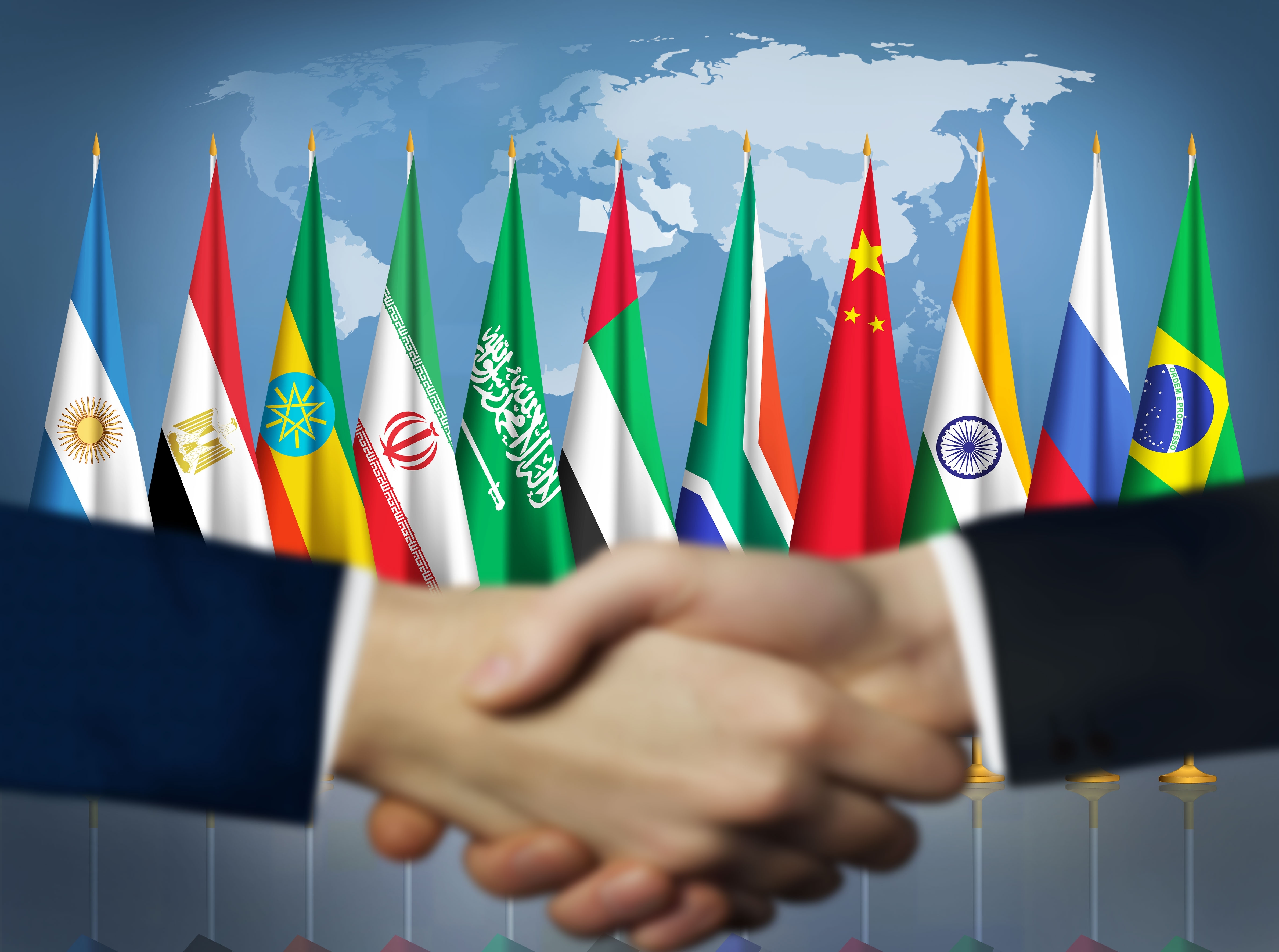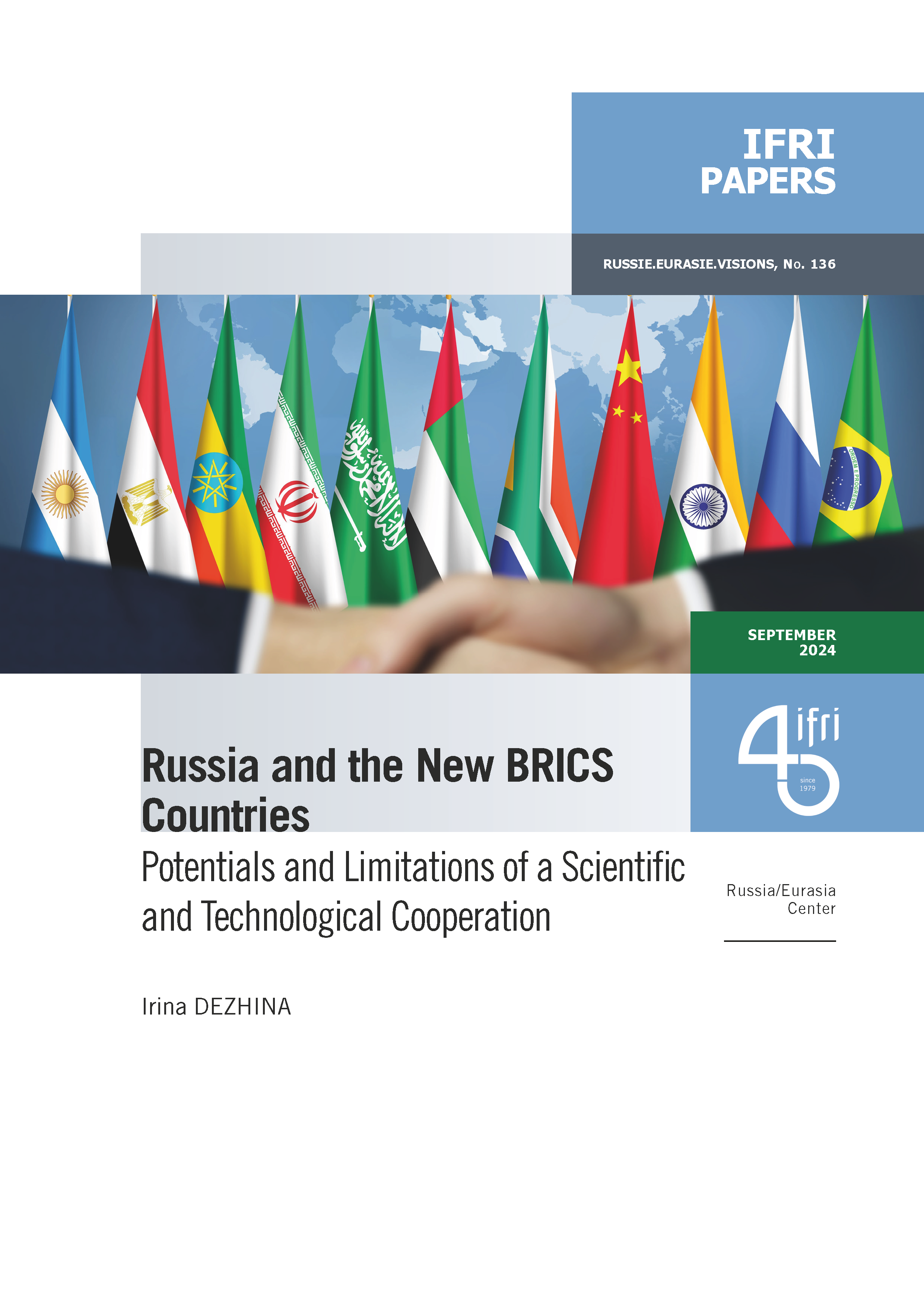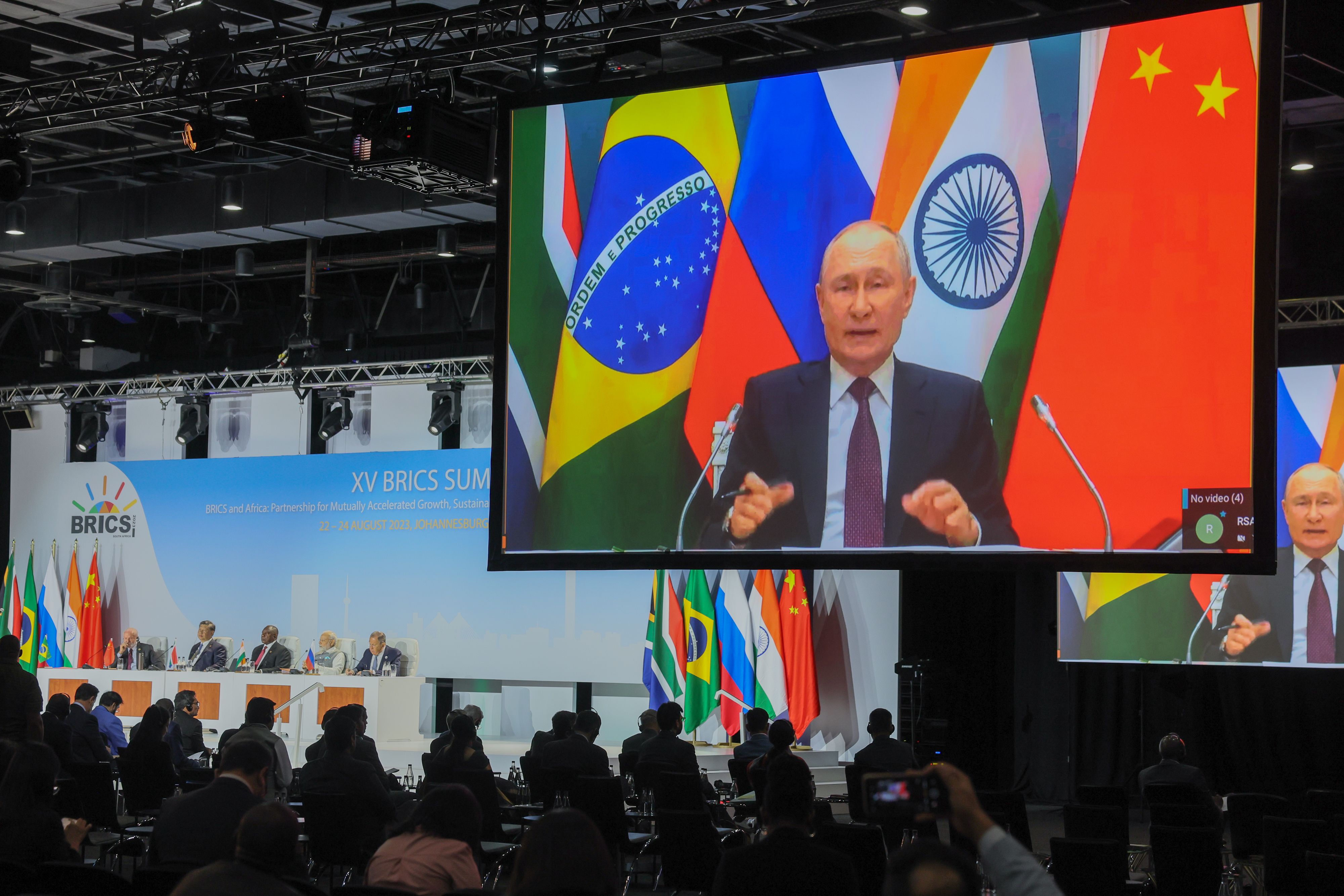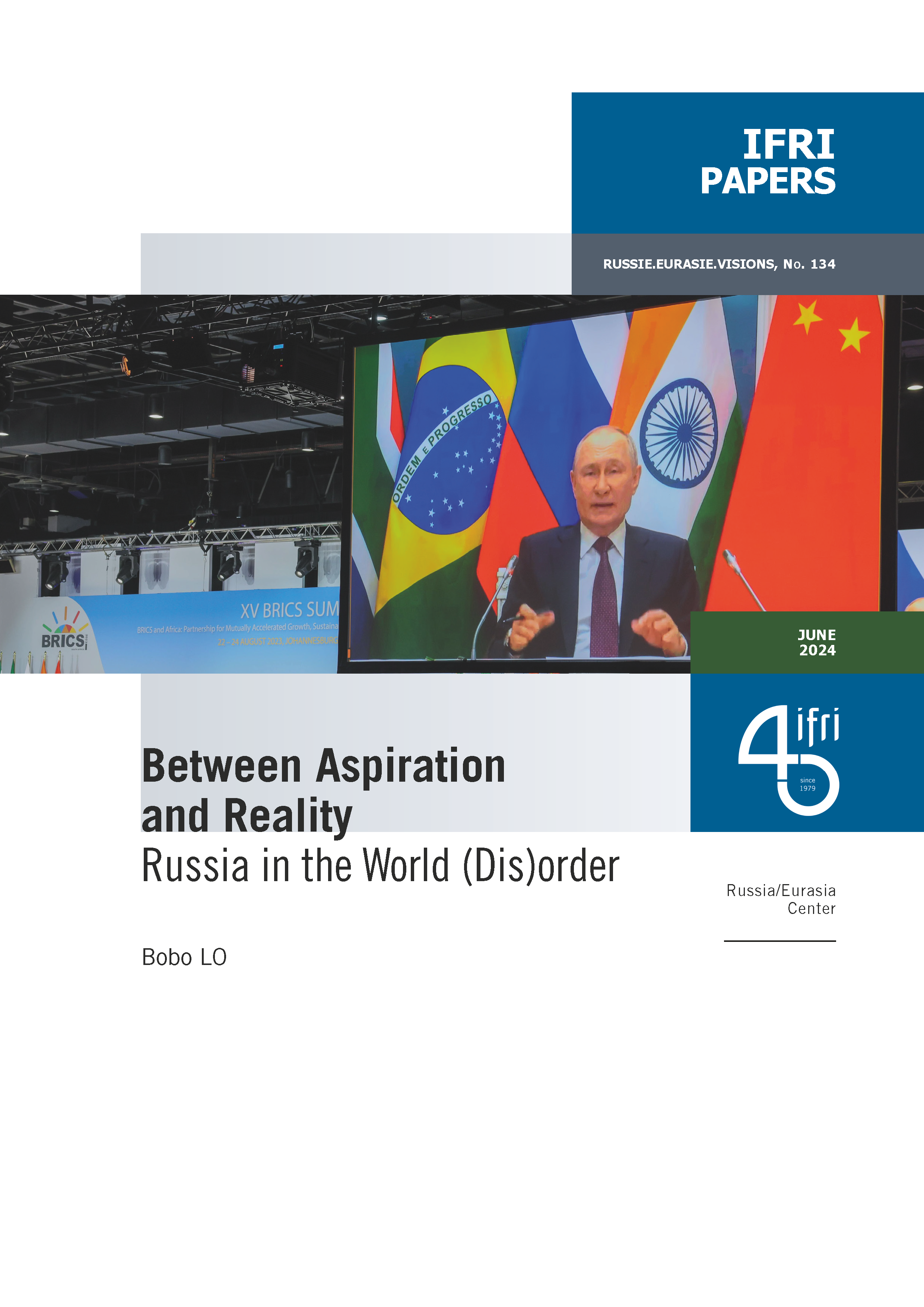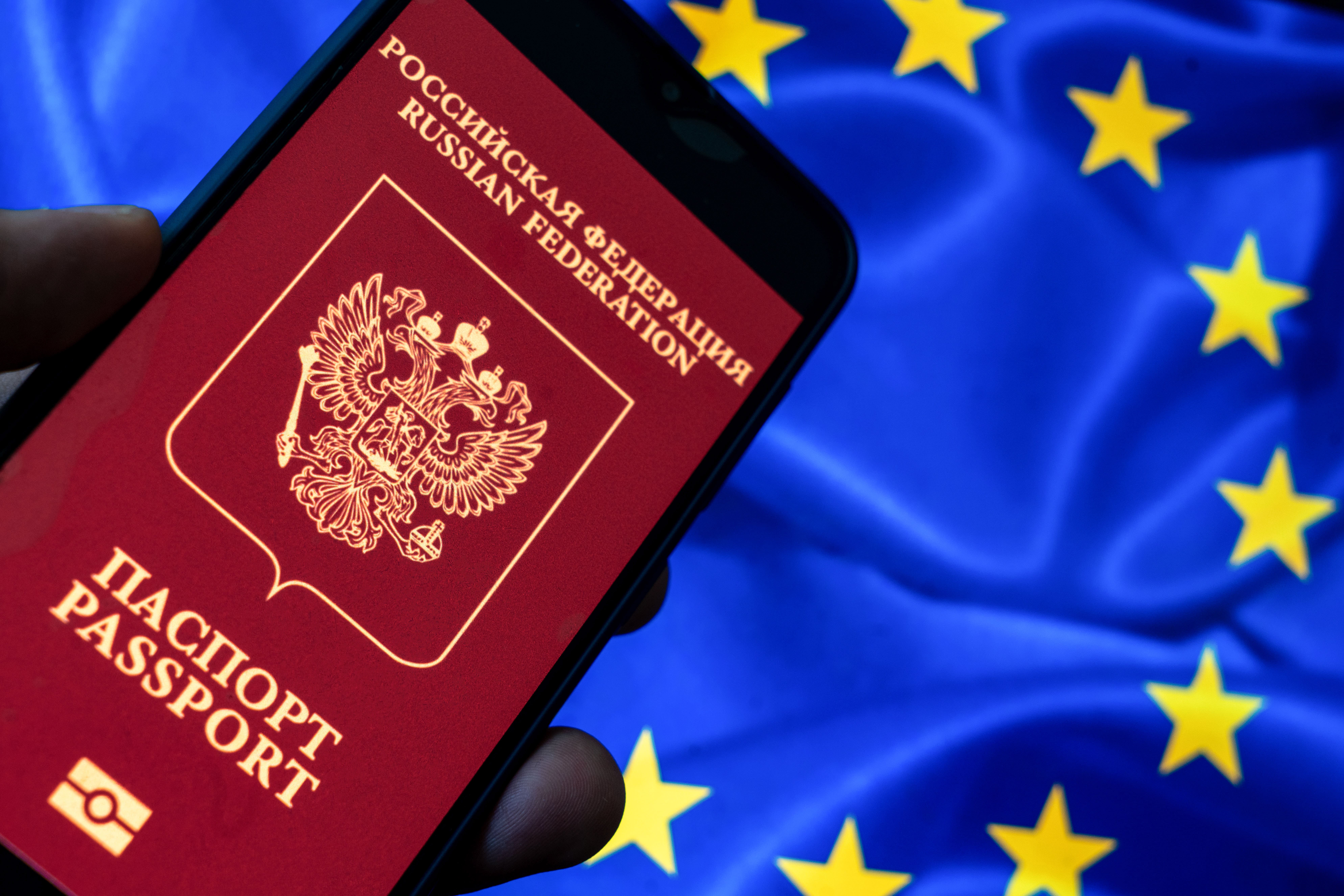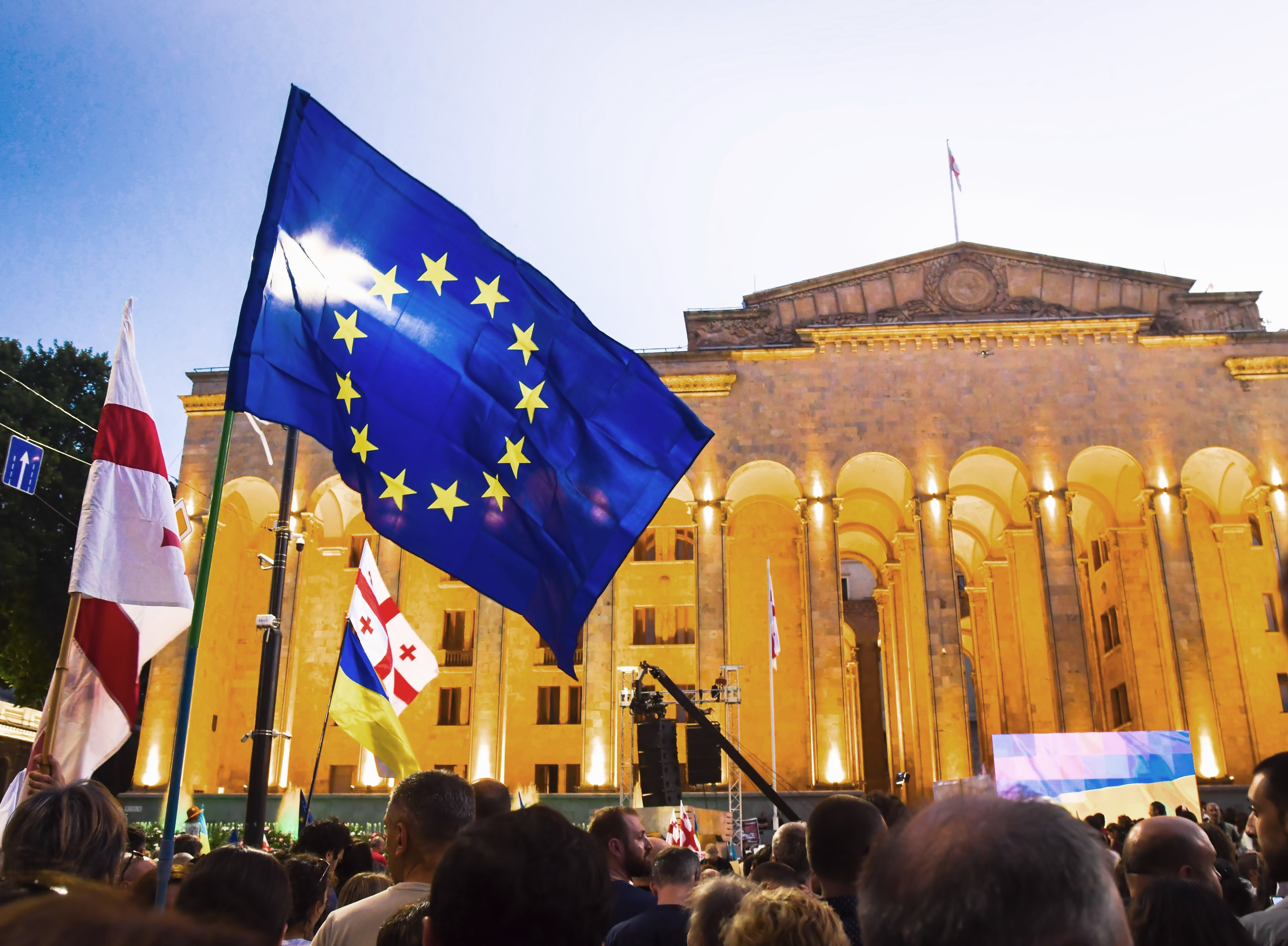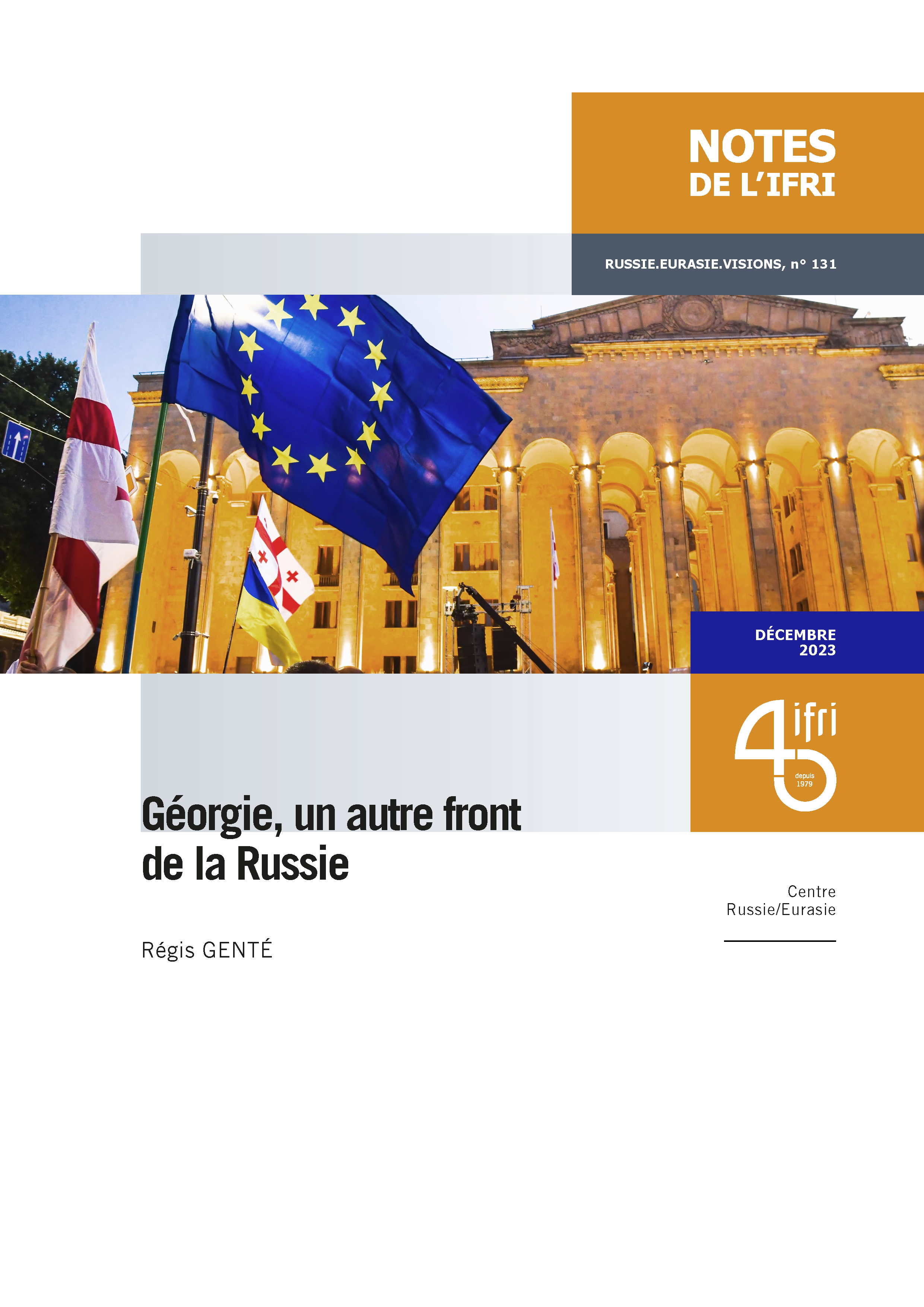Russia/Eurasia Center
Founded in 2005 within Ifri, the Russia/Eurasia Center conducts research and organizes debates on Russia, Eastern Europe, Central Asia, and the South Caucasus. Its goal is to understand and anticipate the evolution of this complex and rapidly changing geographical area in order to enrich public discourse in France and Europe and to assist in strategic, political, and economic decision-making.
Read more


Director of the Russia/Eurasia Center, Ifri
Publications
See all our interventions
Flagship Publications
Titre Bloc Axe
Research Areas
See all our interventions
Titre Axe de recherche
Russian Economy and Society
The Economy and Society research axis within Ifri's Russia/Eurasia Center is interested in economic questions including the impact of Western sanctions on the Russian economy as well as the evolution of society (demography , middle classes, youth, education, opposition, militarization, protest movements, etc.).

Titre Axe de recherche
Russian Domestic Politics
The Domestic Politics research axis within Ifri's Russia/Eurasia Center analyzes Russian domestic politics, the evolution of the political system and its elites, as well as their relations with society.
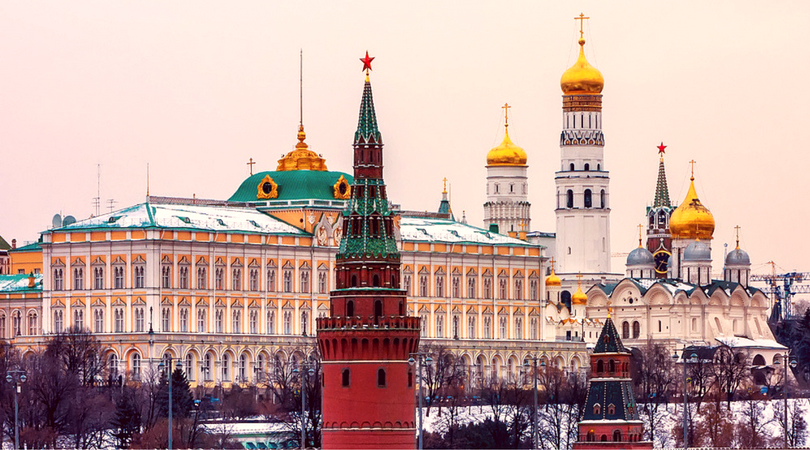
Titre Axe de recherche
Russian Foreign Policy and Defense
The Foreign Policy and Defense research axis within Ifri's Russia/Eurasia Center examines Russia's relations with the former Soviet republics and the rest of the world, particularly the West and China. A specific importance is given to defense and security issues.
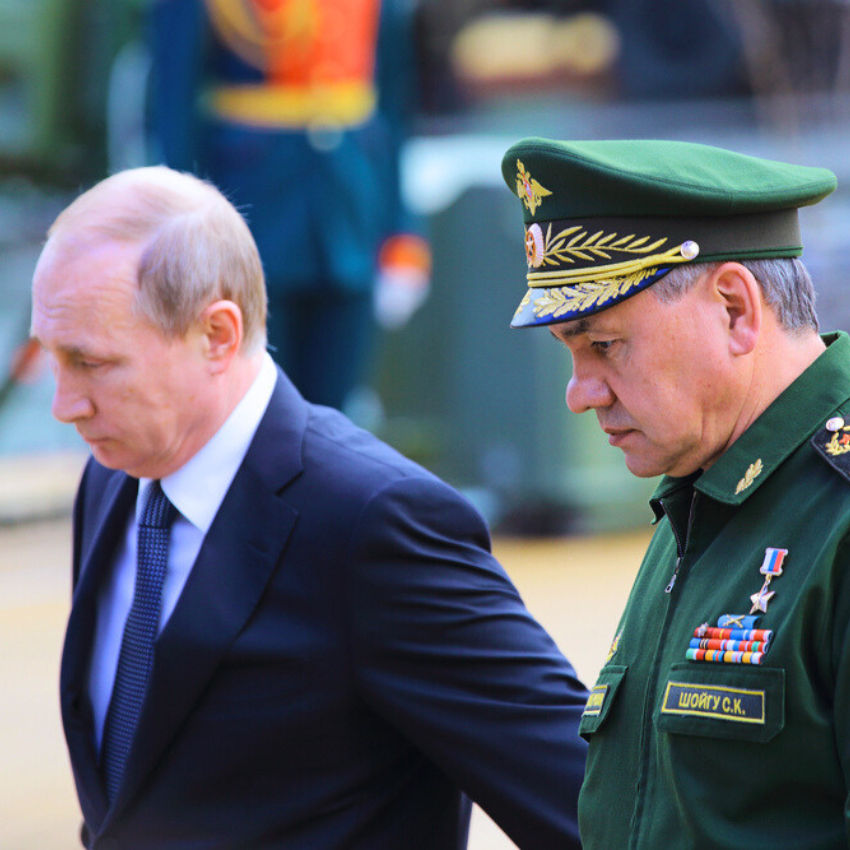
Titre Axe de recherche
Eurasia
The Eurasia research axis within Ifri's Russia/Eurasia Center analyzes internal developments in Ukraine, Moldova, Belarus, Georgia, Armenia, Azerbaijan, Kazakhstan, Uzbekistan, Turkmenistan, Tajikistan and Kyrgyzstan, as well as their relations with the Russian Federation and other regional and global powers.
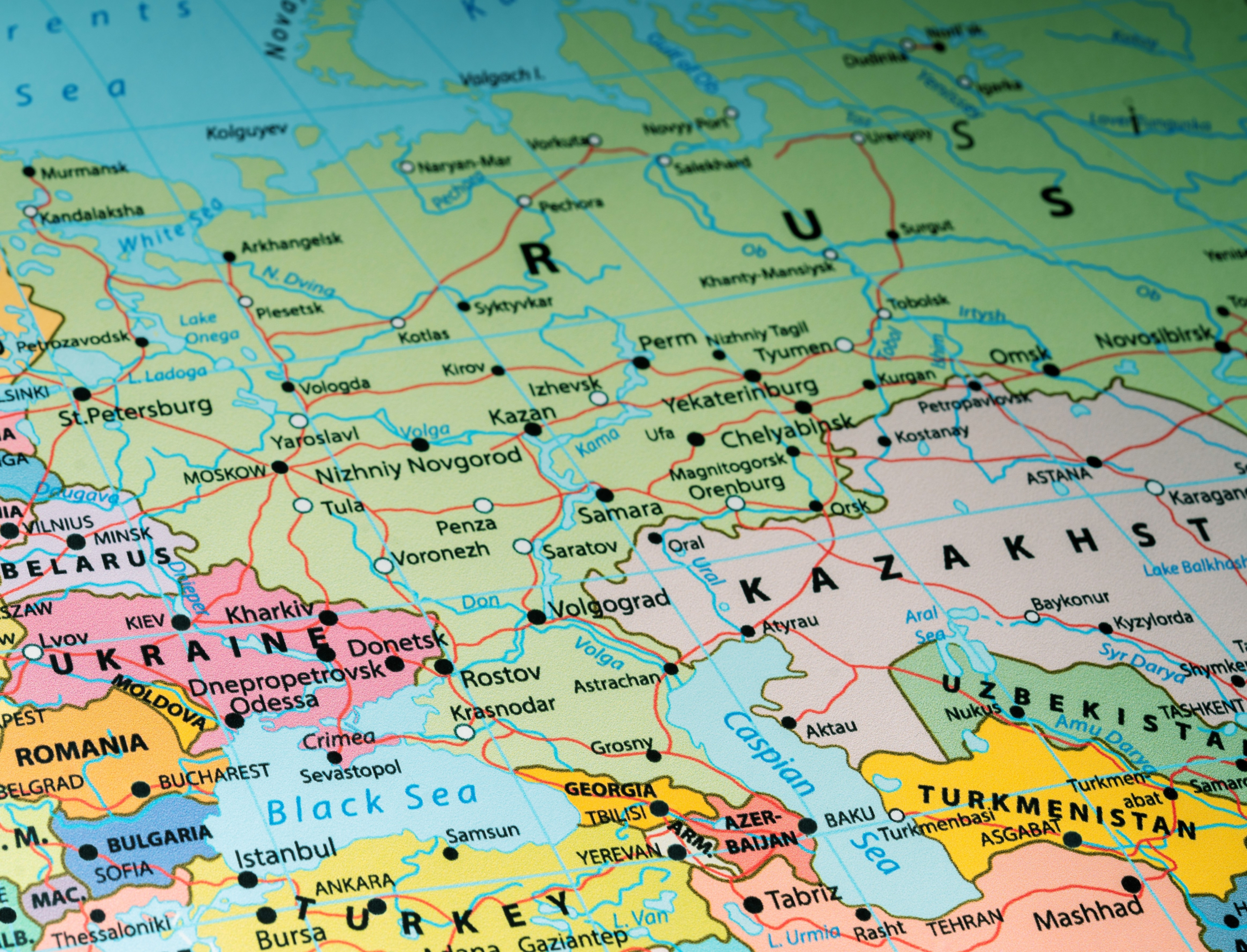
Publications
The EU and Russia: the Needed Balance Between Geopolitics and Regionalism
While the EU conceives its neighborhood via regional policies, Russia sees it in terms of geopolitics. A large part of the misunderstanding which prevails on both sides concerning the 'Common Space for External Security' stems from the clash between these different mental maps. By examining the respective and reciprocal implications of these approaches, this paper underlines the need for both parties to become conscious of the conceptual gap between their viewpoints, and to try ultimately reducing it.
Workshop on EU-Russian Relations
In collaboration with its partners, Ifri is currently supporting a Task Force on the future of EU-Russia relations. The first workshop was held on 2 December 2005 in Paris.
Ukraine's Scissors: between Internal Weakness and External Dependence
Barely one year after the Orange Revolution, Ukraine finds itself in the midst of fresh internal and external dislocations. In one respect, the revolution promises to be enduring. Ukraine is a democratic country with a vigorous political life, and a return to state intimidation and political stagnation is no longer feasible. But the revolution has not fulfilled its central promise: the emergence of authorities who, finally, would govern in the interests of the country rather than themselves. With few exceptions, there has been no attempt to challenge the country's dysfunctional institutional inheritance or replace the culture of patronage with meritocracy. This failing has not only created new internal cleavages, but reopened old international vulnerabilities. The Russian Federation has recovered from its post-orange disorientation and is governed by an elite confident that the country's wealth and energy resources can be used to create a 'sphere of predominance' on the doorstep of the EU. Russia's gas diplomacy in Ukraine, a key corridor to European consumers, reinforces the EU's broader stakes in Ukraine's capacity and trajectory. Without indulging Ukraine's illusions about EU membership, the EU needs to develop channels of integration that are both realistic and mutually beneficial.
Russia and Turkey in the Caucasus: Moving Together to Preserve the Status Quo?
Since 2003 and after centuries of geopolitical competition, Russia and Turkey have drawn together in a new bilateral relationship. Expanding trade has been a major driving force behind this, but shared disillusionment with United States and European policies and attitudes, as well as increasing common ground on issues in the broader Black Sea region and further afield in the Middle East, have all played a role. At this juncture, the main impact of this new relationship is in Russia and Turkey's joint border area of the South Caucasus - with potentially negative implications for the fragile state of Georgia and for the European Union's new 'Neighborhood Policy' in the region.
UE Crisis: What Opportunities for Russia?
Despite the lack of any clear signs of proper 'Europeanization' or any desir to formally joint the European integration process (to became a full member of the European Union - EU), Russia has already become an insider in European political and economic life. Her interaction with the EU, both on a global level and in the sphere of private interests, depends on and is influenced by events within th EU. In this context, Russia can and must also fully consider tactical changes occurring withing decision-making mechanims, and the balance of power within the EU.
Russia and Germany: Continuity and Changes
Over the past six years, a subdivided though very centralised mecanism for Russian-German cooperation has been forming. This mecanism has enabled many issues within bilateral relations to be resolved, but at the same time contributed to growing alienation between officiel attitudes and the mood in civil society in both countries. The 'Schröder-Poutin era' in Russian-German relations is coming to end, and it stands to reason that the new government will make changes. However, these are likely to affect the style, and not the substance of relations with Russia.
Double issue in partnership with the CERFA
Hannes Adomeit, 'Germany's Policy on Russia: End of the Honeymoon?' (original title in German: 'Deutsche Russlandpolitik: Ende des 'Schmusekurses'?'), Russie.Nei.Visions, No. 6(b), September 2005
Germay's Policy on Russia: End of the Honeymoon?
Original title in German: 'Deutsche Russlandpolitik: Ende des 'Schmusekurses'?'
The developments in Putin's Russia away from democracy and the constitutional state have also placed Germany's policy on Russia under scrutiny. In the run-up to the election to the Bundestag on September 18th, representatives of the opposition parties CDU/CSU and FDP have thus made it clear that they no longer approve of the policy Chancellor Schröder has adopted with regard to Russia. The new EU member states in Eastern and Central Europe are accusing Germany of pursuing a Sonderweg compared with the rest of the EU and attempting to build a special relationship with Russia. This article addresses the question of whether this criticism is justified, and what is behind the 'strategic partnership' that Chancellor Schröder and President Putin have attested to time and again.
Double issue in partnership with the CERFA
Andrei Zagorski, 'Russia and Germany: Continuity and Changes', Russie.Nei.Visions, n.6(a), September 2005
Issue available in French, Russian and German.
From Plans to Substance: EU-Russia Relations During the British Presidency
Moscow's relationships with both Brussels and London have been bumpy. Nonetheless, recent progress in EU-Russie relations suggests the potential for refashioning the 'strategic partnership' in a more realistic manner. The UK's priorities are to build on the successes of the Luxembourg presidency and convert plans into practical projects. There are a number of difficulties however, including continuing differences in values and potential clashes of interests. These are likely to be exacerbated by problems in the policy-making structures on both sides. Although the chance exists to add momentum to the relationship, progress will be slow and small scale.
Russian Scientists: Where Are They? Where Are They Going? Human Resources and Research Policy in Russia
This article analyses the evolution of human resources in the field of research since the end of the Soviet era, with particular focus on the phenomenon of the ever-increasing age of experts, the divide into the scientific community and the 'brain drain'. Public policy in the area of managing human resources and its results are examined against this backdrop. A set of recommandations is formulated in conclusion.
Re-Writing Russia's Subsoil Law: from Sovereignty to Civil Law?
Russia is currently engaged in a major overhaul of legislation governing the subsoil.
The Team

Our research fellows: Russia/Eurasia Center
Support independent French research
Ifri, a foundation recognized as being of public utility, relies largely on private donors – companies and individuals – to guarantee its sustainability and intellectual independence. Through their funding, donors help maintain the Institute's position among the world's leading think tanks. By benefiting from an internationally recognized network and expertise, donors refine their understanding of geopolitical risk and its consequences on global politics and the economy. In 2024, Ifri will support more than 70 French and foreign companies and organizations.








